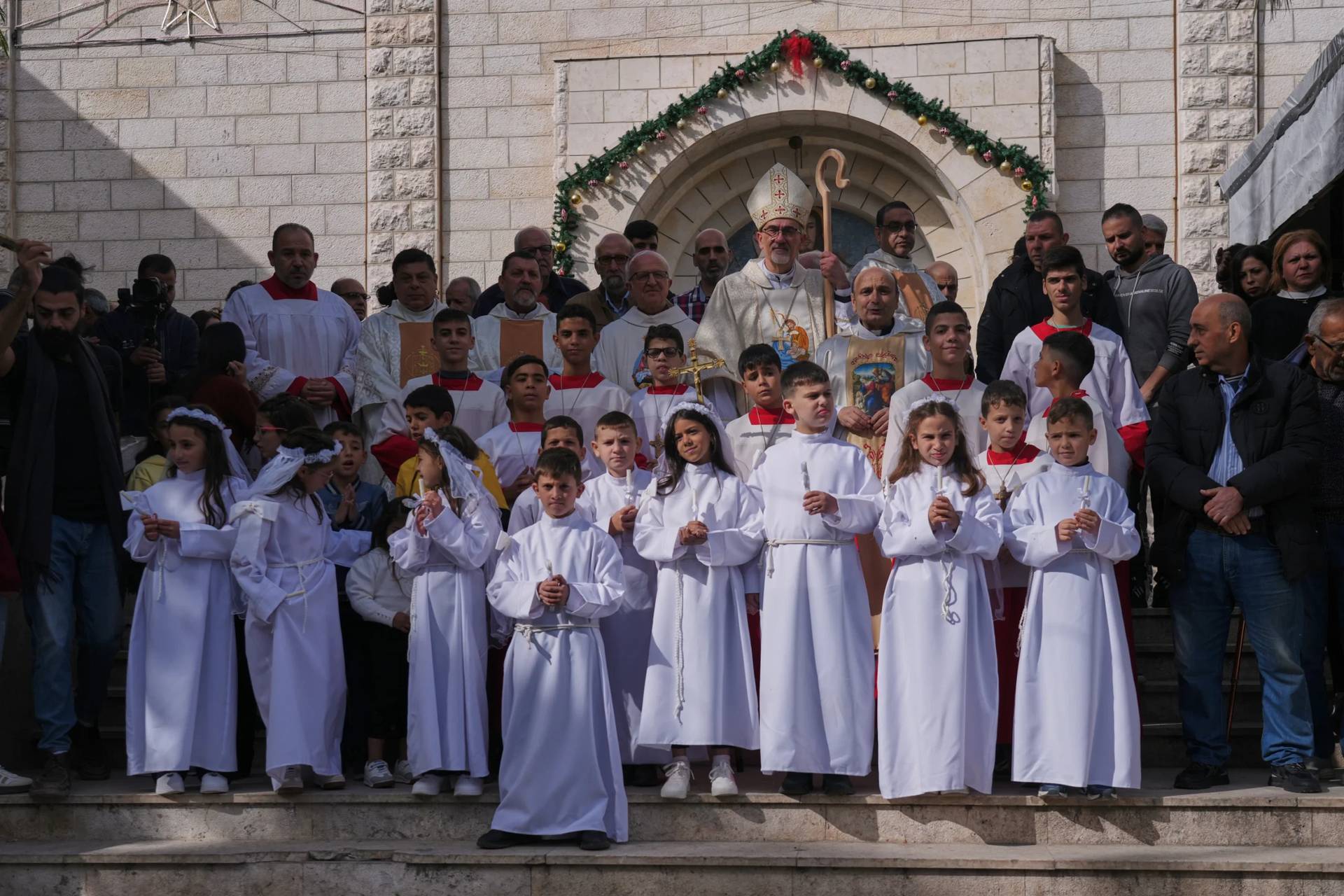JERUSALEM — Bishops from three continents met virtually with Catholics in the Holy Land this year and, despite not being able to meet face-to-face, said remote discussions have still allowed them to listen to local Christians and demonstrate their solidarity.
“We are all sharing hope; it is something which has to be generated,” Bishop Noel Treanor of Down and Connor, the diocese based in Armagh, Northern Ireland, told Catholic News Service Jan. 18 in a virtual interview. He said the bishops, members of the Holy Land Coordination, would use technology to share what they have learned with their local communities.
This is the 21st meeting of the Coordination, which was first convened in 2000 by the Catholic Bishops’ Conference of England and Wales following a request by the Vatican to organize an annual pilgrimage to the Holy Land in solidarity with local Christian communities.
Beginning Jan. 16, the bishops met with Sami El-Yousef, CEO of the Latin Patriarchate of Jerusalem, who briefed them on the current situation in the Holy Land. They also met with Archbishop Pierbattista Pizzaballa, Latin patriarch of Jerusalem, who discussed with them the major challenges the patriarchate faced paying off past debts, and with Archbishop Leopoldo Girelli, apostolic nuncio. The bishops also joined livestreamed Masses from Latin Patriarchate parishes.
The coordination is scheduled to run until Jan. 21, during which time the bishops will be briefed on the current situation in the Gaza Strip, including the COVID-19 response. They will talk to representatives of a job creation project in Gaza and a home for children with disabilities.
The bishops from North America, Europe and South Africa also will meet virtually with Catholic education officials to discuss the role of education for the young Israeli and Palestinian Christians.
Bishop David Malloy, chairman of the U.S. bishops’ Committee on International Justice and Peace, said despite not being present in the Holy Land, the bishops’ mission must still be one of solidarity and hope with the local Christians, and he intends is to bring back that message to his own diocese and to American leaders, including the new Biden administration.
Malloy said in their discussion with Pizzaballa, the patriarch noted the challenges of bringing people back to the practice of their faith after being in isolation from one another for such an extended period. He said the patriarch also spokes of parish priests’ feelings of isolation.
“You have all of these daily pressures of COVID, the political pressures, the economic downturn, the removal of economic aid, all these factors (that add to the) stress,” Malloy said. “It is question of hope, of Christians feeling like this is their home and not looking for reasons to leave. So much of it becomes a question of family, of young people, and what hope we are able to give to our young people.”
Archbishop Stephen Brislin of Cape Town, South Africa, said that although the strain of the pandemic is felt worldwide, in the Holy Land the situation is more intense. He said this was compounded by the cut in about $200 million in U.S. aid to Palestinians in the West Bank and Gaza two years ago.
“It is very difficult to see signs of hope (today). In past while we heard of difficulties and challenges, there was always something we could pick that might be hopeful. Right now it is difficult to see signs of hope, of peace,” he said.
Referencing the recent Abraham Accords, which normalize relations between Israel and the United Arab Emirates and Israel and Bahrain, and the peace agreement Israel reached with Morocco, the archbishop noted that “peace can’t be reached by excluding Palestinians.”
Brislin noted the important role of support and solidarity played by Christian institutions, including clinics and schools, and the financial crisis they face.
“It would be a great shame if any of these institutions have to fold because of lack of money. That is one of the greatest challenges,” he said.
Bishop Declan Lang of Clifton, England, moderator of the Coordination, said that in this time of change, church leaders see “the importance of institutions, especially the schools, which reach out to wider society as part of the church to reconcile people together.”















